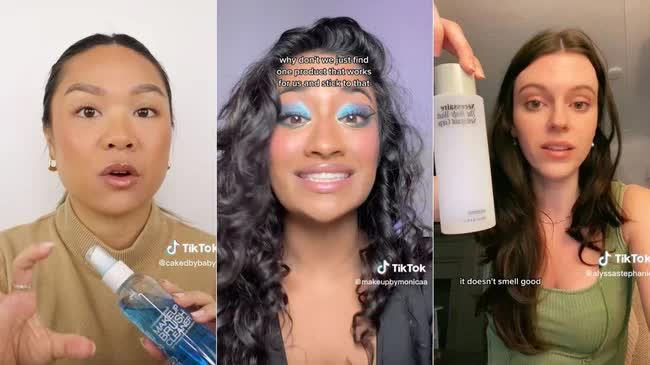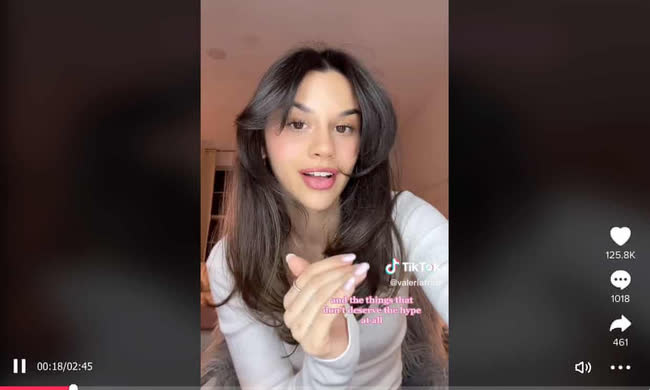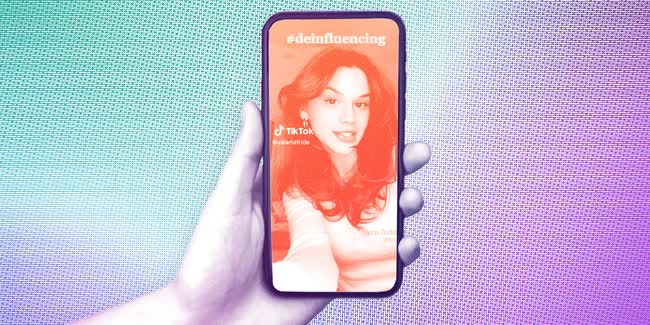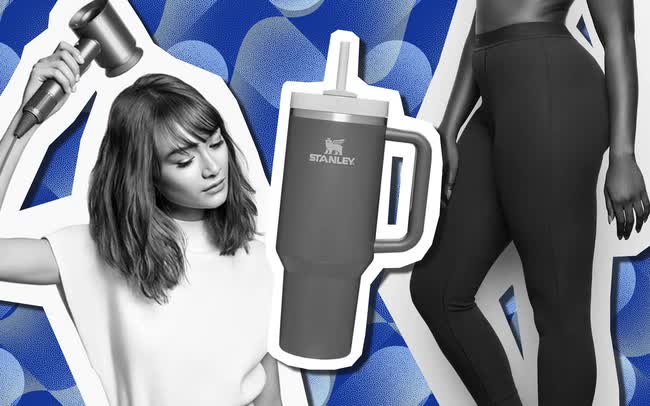On TikTok, anything can happen: There is a growing trend of “going against” specializing in reviewing products that should not be bought, shops should not be visited.
- Tram Ho
More and more content creators on social media are rejecting influencers and instead becoming “influencers”. They call themselves “deinfluencers”, as opposed to “influencers”.
When social networks turn into commercial centers
We all know influencers on TikTok, Instagram, Facebook,… now have too much “power” over the business and marketing industry. With review clips, compliments from them, whether it’s lip gloss or a dress, phone, face wash, … all have a certain spread. Typically, influencers are hired by brands and buyers through their referral channel will receive a discount using a special code when making a purchase.
Social media is now like a tech-age mall – where people go to spend their money – filled with “must-haves” like thermal eyelash curlers and pink bleaching powder. “miracle”. And when something goes viral online, it sells in real life. According to reports, influencers have sold $3.6 billion in merchandise by 2022. In a recent study, 54% of people said they made a purchase immediately or after seeing a product or services on Instagram. According to another report, 55% of TikTok users made a purchase after seeing a brand or product on the platform. On Twitter, that number is 40%.
Shopping under the direction of influencers is now an all-too-familiar trend. When wearing a dress worn by a famous fashionista with millions of followers, the girls will feel that they own the aesthetic style and keep up with the trends.

Social networks like TikTok are “controlling” many people’s shopping habits
Trends encourage people not to “splash money”
And to go against this familiar wave, now a new movement emerges on TikTok. Content creators try to reduce the influence of online advertising on users, give advice on which advertised products are not worth the hype, or tell them directly what not to buy.
Bita, aka @bbybeets, 25, posted a video on TikTok listing items she’s seen with influencer ads that people absolutely shouldn’t buy. The reason she gave was simply because they were “not affordable”.

In the video, which has had more than 58,000 views, Bita said the average wage earner can’t afford items like £95 sandals and £550 headphones. ), but they feel pressured to buy them to keep up with the trend.
“All the brands I mentioned are expensive,” she said. To buy these trending items, you must have a certain income, and most people do not, myself included. So we don’t have to buy them. I’m reminding my viewers that it’s really unusual to buy those things. It’s luxury spending.”
On TikTok, the hashtag #deinfluencer currently has more than 159.6 million views. According to Jago Sherman, head of strategy at social media marketing firm Goat, the popularity of this trend is fueled because people are tired of being “driven” by social media. constantly buying something.

The trend of deinfluencing goes against the crowd
“We have reached a critical point when it comes to consumerism,” he said. People are fed up with going on social media and being told, ‘You need this and this’.”
For Valeria Fridegotto, 22, a student and part-time content creator living in Chicago, Illinois, the tough economic situation prompted her to make a video about products she considers overrated. high and “not worth the hype”.
“Given the economic situation in the US, people need to spend more carefully,” she said. I feel like they’re unconsciously drawn to content people on TikTok that encourage them to buy expensive items.” Her video has more than 1.3 million views and hundreds of comments.
Sherman said the TikTok algorithm may not depend on the number of followers. So users with a relatively small following can still go viral, fueling the trend. This trend that goes against the majority has also spread to many other areas such as restaurant reviews that should not be visited, tourist destinations that should not be visited, …

While some users in the comments below Fridegotto’s video shared her views on the products, TikToker still expressed concern that her bad reviews could backfire in the future. “In a perfect world, we’d like to think that brands would take that as customer feedback, but I’m afraid that could hurt potential partnerships with other brands.
As for Sherman, despite participating enthusiastically, she thinks this trend will not go anywhere. “My view is this is just another word for an honest review. Those who want to eliminate influence are making an impact.”
Source: The Guardian
Source : Genk
